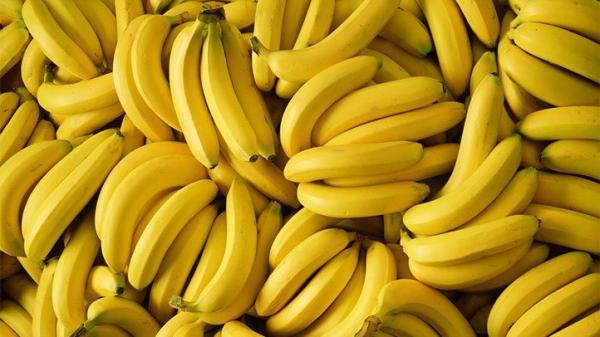
Bananas are tropical fruits that have a soft pulp inside their fleshy peel. These fruits are elongated and slightly curved and they grow in clusters near the top of the fruiting plant. Bananas come in a range of colors, including green, red, yellow, and brown (when ripe). A banana tree is the largest flowering herbaceous plant in the world. The scientific name of bananas is musa species.
Bananas are a tasty and convenient source of some important nutrients. People have grown this tropical fruit since ancient times, and its health benefits have been promoted for more than a century. They are one of the most popular fruits worldwide. They contain essential nutrients that can have a protective impact on health. Hence, CEOAFRICA has helped to provide the health benefits of eating banana. They include:
Healthier skin
One medium-sized banana provides approximately 13% of your daily manganese needs. Manganese helps your body make collagen and protects your skin and other cells against free radical damage.
Ease of digestion
A medium banana will provide about 10-12% of your daily fibre needs. Health professionals recommends a daily dietary fibre intake of 20g for women and 26g for men.
Soluble and insoluble fibres play an important role in your health. Soluble fibre helps your body control your blood sugar level and get rid of fatty substances such as cholesterol. Insoluble fibre adds weight and softness to stools, making it easier for you to have regular bowel movements. This helps to keep your gut healthy and safe from harmful bacteria. Examples of foods that are rich in soluble fibre include: avocados, carrot, corn, cashew nuts, tiger nuts, cucumber, okra and pepper fruit, while those of insoluble fibre include: fruits, nuts and seeds, vegetables, wheat bran and whole grain foods. Soluble fibres dissolve in water easily, thus digesting faster; insoluble fibres do not.
Bananas, especially newly-ripened ones, contain starch that does not digest (resistant starch) in your small intestine and is able to pass into the large intestine. Such bananas help you manage your weight better as you stay full for longer.
Management of pressure
The health professionals encourage people to lower their intake of salt, or sodium, and increase their consumption of foods that contain potassium. Potassium foods like banana can help manage blood pressure and reduce strain on the cardiovascular system.
A medium banana provides almost 9% of a person’s daily potassium needs, according to the nutritional information from the above sources.
Management of other diseases
A 2007 study suggested that eating bananas might help prevent wheezing in children with asthma. One reason for this could be the antioxidant and potassium content of bananas. However, more research is needed to confirm these findings. Bananas are good for managing heart-related health issues. This is because they contain fibre, potassium, folate, and antioxidants, such as vitamin C. All of these support heart health. A 2017 review found that people who follow a high fibre diet have a lower risk of cardiovascular disease than those on a low fibre diet. Those who consumed more fibre also had lower levels of low-density lipoprotein (LDL), or “bad” cholesterol.
Preserving memory and boosting mood
Bananas contain tryptophan, an amino acid that may help preserve memory, boost a person’s ability to learn and remember things, and regulate mood.
Bananas give you energy – minus the fats and cholesterol
Bananas contain three natural sugars – sucrose, fructose and glucose – giving you a fat and cholesterol-free source of energy. As such, bananas are ideal, especially for children and athletes, for breakfast, as a midday snack or before and after sports.
However, eating too much of banana can cause health risk. Below are some of the health risks attached to eating too much of bananas.
Beta-blockers: Doctors often prescribe these drugs to reduce the risk of complications that they associate with cardiovascular disease. Beta-blockers can raise potassium levels in the blood. Consuming too much potassium can be harmful to those whose kidneys are not fully functional. If the kidneys are unable to remove excess potassium from the blood, it could be fatal. People who use beta-blockers should eat high potassium foods, such as bananas, in moderation.
Allergy: Bananas may trigger an allergic reaction in some people. Anyone who experiences itching, hives, swelling, wheezing or difficulty in breathing should seek medical help at once. A severe reaction can lead to anaphylaxis, which can be life threatening. Bananas may trigger migraines in some people.






















